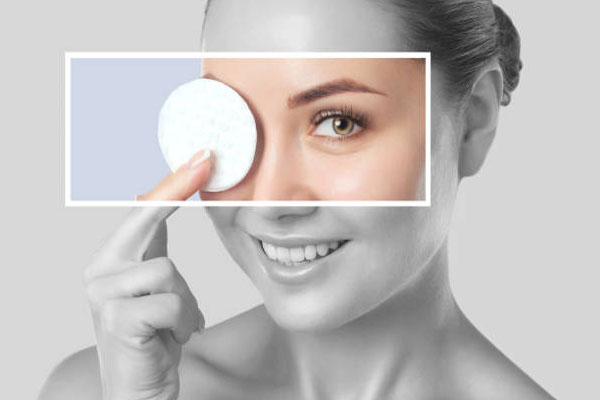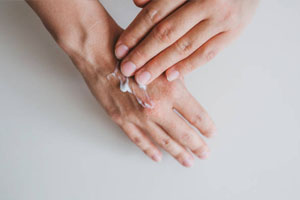Discover the science behind aging, effective anti-aging strategies, and key ingredients that can help you maintain youthful skin Learn about the impact of lifestyle habits and find answers to common questions about the best approach to anti-aging skincare
Welcome to a comprehensive exploration of the world of anti-aging skincare. In our quest to defy the signs of time and preserve youthful, radiant skin, it's essential to understand the science behind aging and how it impacts our skin. This guide will take you on a journey through the intricacies of anti-aging strategies, from choosing the right skincare products to adopting healthy lifestyle habits. So, let's dive into the science, ingredients, and practices that can help you embrace the best approach to anti-aging skincare.

The Science of Aging
Understanding Skin Aging
Skin aging is a complex process influenced by various factors. To effectively combat it, it's crucial to grasp the fundamental concepts involved. Here are key points to consider:
The Role of Collagen and Elastin
Collagen and elastin are two proteins essential for maintaining youthful skin. Collagen provides structural support, while elastin allows your skin to bounce back after stretching. As we age, the production of these proteins decreases, leading to wrinkles and sagging skin.
The Impact of UV Radiation
Exposure to ultraviolet (UV) radiation from the sun is a leading cause of premature skin aging. UV rays break down collagen and elastin fibers, causing photoaging. Protecting your skin from the sun is a key anti-aging strategy.
Free Radicals and Oxidative Stress
Free radicals, unstable molecules in your body, can damage skin cells. This oxidative stress contributes to the aging process. Antioxidants, found in many anti-aging products, help neutralize free radicals and mitigate their effects.
Genetics and Intrinsic Aging
Genetics also play a role in how our skin ages. Intrinsic aging is the natural aging process determined by your genes. While genetics can't be changed, understanding them can inform your anti-aging approach.
Lifestyle Choices and Extrinsic Aging
Extrinsic aging results from external factors, primarily lifestyle choices. Smoking, poor nutrition, and excessive alcohol consumption can accelerate skin aging. Conversely, a healthy lifestyle can help slow the aging process.
By delving into these aspects of skin aging, you can gain a deeper understanding of the factors that contribute to it. Armed with this knowledge, you can take more informed steps in your quest for youthful, healthy skin.
Factors Contributing to Skin Aging
Skin aging is influenced by a multitude of factors, both intrinsic and extrinsic. Understanding these contributors is crucial for effective anti-aging strategies. Here are some key factors:
Sun Exposure
UV radiation from the sun is a primary external factor in skin aging. It can lead to premature wrinkles, age spots, and sagging skin. Protecting your skin from the sun with sunscreen and other measures is essential for anti-aging.
Smoking
Smoking accelerates skin aging by narrowing blood vessels, reducing blood flow, and depleting the skin's oxygen and nutrients. It can result in fine lines, wrinkles, and a dull complexion. Quitting smoking can help slow down this process.
Poor Diet
Nutrition plays a significant role in skin health. A diet lacking essential vitamins, minerals, and antioxidants can contribute to skin aging. Consuming a well-balanced diet rich in fruits, vegetables, and Omega-3 fatty acids can support youthful skin.
Dehydration
Dehydrated skin is more prone to wrinkles and fine lines. Staying well-hydrated is essential for maintaining skin elasticity and preventing the signs of aging. Drinking an adequate amount of water daily is a simple yet effective anti-aging practice.
Stress
Chronic stress can impact the skin negatively. It may exacerbate skin conditions and contribute to premature aging. Stress management techniques, such as meditation and yoga, can help maintain skin health.
Lack of Sleep
Quality sleep is essential for skin rejuvenation. Inadequate sleep can lead to dark circles, puffiness, and a dull complexion. Prioritizing sufficient, restful sleep is a valuable anti-aging practice.
By considering these factors contributing to skin aging, you can develop a comprehensive approach to maintaining youthful and healthy skin. Effective anti-aging strategies involve addressing both intrinsic and extrinsic elements that impact your skin's appearance and health.
Effective Anti-Aging Strategies
Choosing the Right Skincare Products
Choosing the right skincare products is essential for an effective anti-aging regimen. Here's what to consider when selecting your products:
Skin Type Assessment
Start by identifying your skin type, whether it's oily, dry, combination, or sensitive. Understanding your skin type will guide your choice of products. For instance, if you have dry skin, you'd look for moisturizing products.
Ingredients to Look For
Look for key ingredients known for their anti-aging properties. These may include:
- Retinoids: These vitamin A derivatives are well-known for reducing fine lines and wrinkles.
- Antioxidants: Ingredients like vitamin C and E can protect the skin from free radical damage.
- Peptides: Peptides can stimulate collagen production and promote skin firmness.
- Hydrating Ingredients: Hyaluronic acid and glycerin can keep the skin moisturized and plump.
Fragrance and Allergens
Avoid products with strong fragrances, as these can irritate the skin. Additionally, be cautious about potential allergens. If you have sensitive skin, consider fragrance-free and hypoallergenic options.
SPF Protection
Daytime products should ideally include SPF (Sun Protection Factor). Protecting your skin from UV rays is a fundamental anti-aging measure. SPF not only prevents sun damage but also helps maintain youthful skin.
Patch Testing
Before fully incorporating a new product into your routine, perform a patch test. Apply a small amount to a discreet area of your skin to check for adverse reactions or allergies. This helps avoid potential skin irritations or breakouts.
By considering these factors when choosing skincare products, you can tailor your anti-aging routine to your specific needs and maximize the effectiveness of your skincare regimen. Remember that a personalized approach is key to achieving youthful, radiant skin.
Key Ingredients for Anti-Aging
Anti-aging skincare products often contain specific ingredients known for their effectiveness in reducing the signs of aging. Here are some key ingredients to look for:
Retinoids
Retinoids, including retinol, retinyl palmitate, and tretinoin, are derived from vitamin A. They are renowned for their ability to stimulate collagen production, improve skin texture, and reduce the appearance of fine lines and wrinkles. Regular use of retinoids can promote skin renewal.
Antioxidants
Antioxidants like vitamin C, vitamin E, and green tea extract help protect the skin from free radical damage caused by UV rays and environmental pollutants. They can brighten the skin, improve skin tone, and reduce signs of aging. Antioxidants are often found in serums and creams.
Peptides
Peptides are short chains of amino acids that can stimulate collagen production and help the skin maintain its firmness. Different peptides have various benefits, such as reducing wrinkles, hydrating the skin, and improving elasticity. They are often present in serums and creams as well.
Hyaluronic Acid
Hyaluronic acid is a powerful hydrating ingredient. It can hold up to 1,000 times its weight in water, making it an effective moisturizer. This ingredient helps plump the skin, reduce the appearance of fine lines, and maintain a youthful glow. Hyaluronic acid is commonly found in serums and moisturizers.
SPF (Sunscreen)
Sunscreen, or SPF, is a critical ingredient for anti-aging. It protects the skin from the harmful effects of UV radiation, such as sunspots, fine lines, and skin cancer. Regular application of sunscreen is one of the most effective anti-aging measures you can take.
When choosing anti-aging products, consider those containing these key ingredients. Combining these elements in your skincare routine can help address a range of aging concerns and promote healthier, more youthful skin.
Healthy Lifestyle Habits for Youthful Skin
Achieving youthful and radiant skin isn't just about the products you use; it's also about adopting a healthy lifestyle. Here are some habits to incorporate into your daily routine for maintaining youthful skin:
1. Balanced Diet
Eating a well-balanced diet rich in fruits, vegetables, lean proteins, and whole grains provides essential nutrients that support skin health. Foods high in antioxidants, vitamins, and minerals can help combat free radical damage and promote a glowing complexion.
2. Hydration
Proper hydration is crucial for maintaining skin elasticity. Drinking an adequate amount of water daily helps plump the skin, reduce the appearance of fine lines, and keep it looking fresh and youthful.
3. Adequate Sleep
Quality sleep is when your body repairs and rejuvenates. During deep sleep, growth hormones are released, promoting cell turnover and collagen production. Aim for 7-9 hours of uninterrupted sleep each night to support skin renewal.
4. Stress Management
Chronic stress can contribute to skin problems and premature aging. Engage in stress-reduction techniques like meditation, yoga, and deep breathing exercises to maintain healthy skin and overall well-being.
5. Avoiding Smoking
Smoking accelerates skin aging by narrowing blood vessels, reducing blood flow, and depleting the skin's oxygen and nutrients. Quitting smoking can help prevent wrinkles and maintain a youthful complexion.
6. Sun Protection
Protecting your skin from the sun is one of the most effective anti-aging measures. Use sunscreen daily, wear protective clothing, and seek shade to prevent sun damage, including wrinkles and age spots.
7. Regular Exercise
Exercise increases blood flow, which nourishes skin cells and keeps them healthy. Regular physical activity can help maintain skin elasticity and a vibrant complexion.
8. Gentle Skincare Practices
Be gentle with your skin. Avoid harsh scrubbing and aggressive cleansing. Use a mild cleanser, and don't over-exfoliate. Treat your skin with care to avoid irritation and maintain its youthful appearance.
By incorporating these healthy lifestyle habits into your routine, you can support your anti-aging efforts and maintain youthful, vibrant skin. Remember that a holistic approach is key to achieving and preserving a youthful complexion.
FAQs (Frequently Asked Questions)
Q1: When should I start an anti-aging skincare routine?
A1: It's never too early to start an anti-aging skincare routine. Prevention is key, so consider incorporating anti-aging products in your mid-20s or early 30s. However, the specific age varies from person to person based on skin type and concerns.
Q2: What ingredients should I look for in anti-aging products?
A2: Look for ingredients like retinoids, antioxidants (vitamin C and E), peptides, hyaluronic acid, and SPF. These ingredients can address a range of aging concerns, from fine lines and wrinkles to sun protection and hydration.
Q3: Can lifestyle changes truly impact skin aging?
A3: Yes, lifestyle changes can significantly impact skin aging. A balanced diet, hydration, quality sleep, stress management, and sun protection are crucial. Smoking cessation and regular exercise also contribute to youthful skin.
Q4: Are there specific anti-aging routines for different skin types?
A4: Yes, anti-aging routines can be tailored to different skin types. For example, those with dry skin may require richer moisturizers, while individuals with oily skin might opt for lightweight, non-comedogenic products. Consult with a dermatologist for personalized recommendations.
Q5: Is it possible to reverse the signs of aging with skincare products?
A5: While skincare products can't reverse aging entirely, they can help improve skin texture, reduce wrinkles, and minimize the appearance of age-related concerns. Consistent use of anti-aging products can lead to visible improvements over time.
Q6: What's the role of genetics in skin aging?
A6: Genetics influence intrinsic aging, the natural aging process determined by your genes. While you can't change your genetics, understanding your family history can help you anticipate potential aging concerns and adapt your skincare routine accordingly.
Q7: Can I use multiple anti-aging products together?
A7: Yes, you can use multiple anti-aging products together, but it's essential to be cautious. Start slowly to avoid overloading your skin, and introduce one product at a time. Be consistent with sunscreen during the day and focus on nighttime products for maximum benefit.
Q8: How long does it take to see results from anti-aging products?
A8: The time it takes to see results varies depending on the product and individual factors. In some cases, you may notice improvements in a few weeks, while more dramatic results may take several months. Consistency is key; give your routine time to work.
Q9: Can I use natural remedies for anti-aging?
A9: Natural remedies like aloe vera, coconut oil, and honey can offer some benefits, but they may not be as effective as specialized anti-aging products. Combining natural remedies with scientifically-proven ingredients can be a holistic approach to skincare.
Q10: What's the role of regular facials in anti-aging skincare?
A10: Regular facials can complement your anti-aging routine by providing deep cleansing, exfoliation, and hydration. They can enhance the effects of your products and promote healthier, more youthful skin. Consult with a skincare professional for guidance on the frequency of facials.








